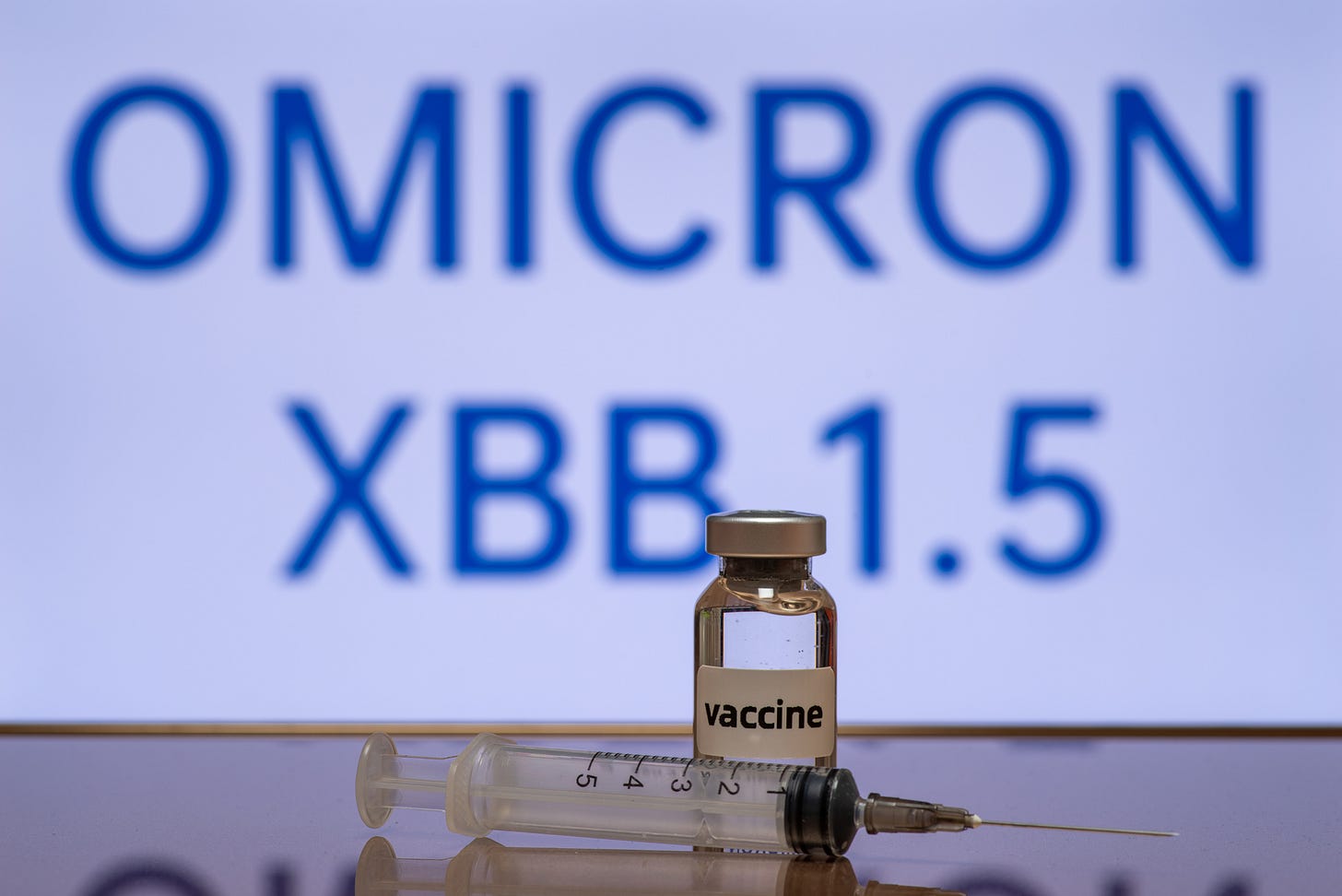The WHO announced this Thursday that the next Covid-19 booster should be targeted to the Omicron variant that is currently circulating, namely the XBB.1.5 lineage.
What we have now: a bivalent booster that leads to immunity against the original Wuhan strain and an earlier version of Omicron.
Why the bivalent formulation is a modest improvement over the original: the bivalent booster currently in use is an incremental improvement over the previous original vaccines. The effectiveness is somewhat higher and it looks to last longer. That said, studies showing the bivalent booster as substantially better than the earlier version basically compared people who had recently been boosted with the bivalent formulation to those who had been boosted with the original vaccine, but less recently. That’s like judging one marathon runner’s first mile to another’s 26th; Same distance? Yes. But those miles are not comparable. Head-to-head data are limited but the bivalent vaccine was not a game-changer, especially for people without high risks.
The other reason the bivalent booster is an improvement is that it stands to cause less imprinting. Imprinting is when the immune system remembers earlier viruses so vividly, that new ones get shrugged off. This makes re-infection more likely down the road, once early rushes of antibodies fade away. We’ve seen evidence of that in the lab and in real life. “Too much” memory to the Wuhan virus became a problem for some people during the Omicron wave. The bivalent booster likely decreases that problem by halving the dose and exposing the immune system to Omicron as well.
Why a monovalent Omicron-only booster would likely be better: The data supporting an Omicron-only booster are somewhat limited, but the WHO laid out some of that in its briefing.
The best argument for monovalent Omicron-only boosts next go-round was not mentioned: the immunocompromised.
For a while now, several of my colleagues and I have been making a distinction about what the vaccine is intended to do. For most people, the vaccines are meant to prevent severe Covid-19 outcomes. Whether a young healthy person gets one booster or another—or any booster at all!—probably does not really matter, it turns out. This population is already protected against serious outcomes after 2 doses, and especially with hybrid immunity (vaccines + infection).
For the severely immunocompromised and older population, the vaccines can and do protect against serious outcomes, but they also have the added important value of preventing infections temporarily. The vaccines do this for everyone, but hospitalizations and deaths are occurring in those like the severely immunocompromised—people who can’t afford infection. That means that the 2-4 month period with decreased infection after a boost makes a genuine difference in outcomes for the highest-risk population with respect to serious outcomes.
A monovalent Omicron-only booster is likely to perform better in temporarily decreasing infections. Even though that effect is most important to a minority of the population, it’s worth changing the vaccine to achieve, just for them.
For the rest of the population, whether the alteration in formula has any difference in effectiveness against severe disease (even if it were somehow a bit lower) would translate to almost no noticeable effect in rates of severe disease, because bad outcomes are so rare in that group anyway. And for those who want to avoid infections (even without high-risk medical conditions) the benefit will be there too.
The FDA will decide what the US will do this fall when it meets in June.
Dr. Califf—if you’re reading this, as I know you sometimes do!—I believe the FDA and therefore the United States should follow the WHO’s advice on this one.





As the PHE is over and the new method of reporting Covid deaths per CDC guidelines has caused a rapid lowering of the count and will result in delays, the public has really no data to follow. Personally, I follow wastewater via https://biobot.io/data/
My daughter's family all got Covid the day before the PHE expired and when one granddaughter was still testing positive, her teacher told her to drop the mask. Mitigation is so over.
We have to assess our risk with no real data.
Our department of health does do modeling and things look good for the population right now, they expect increases in the fall. In time for the booster, for those who want/need it.
Thank you, as always, for your science based digests and insights